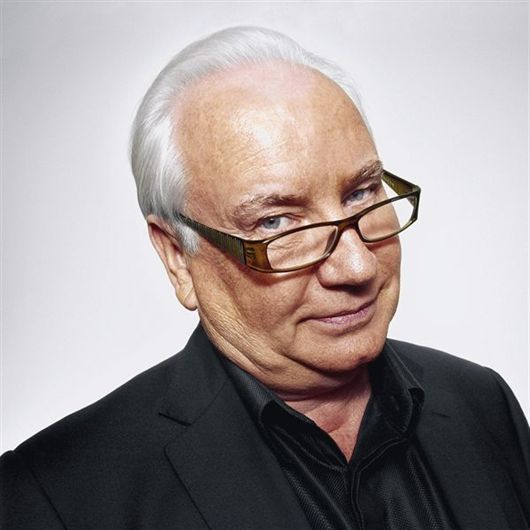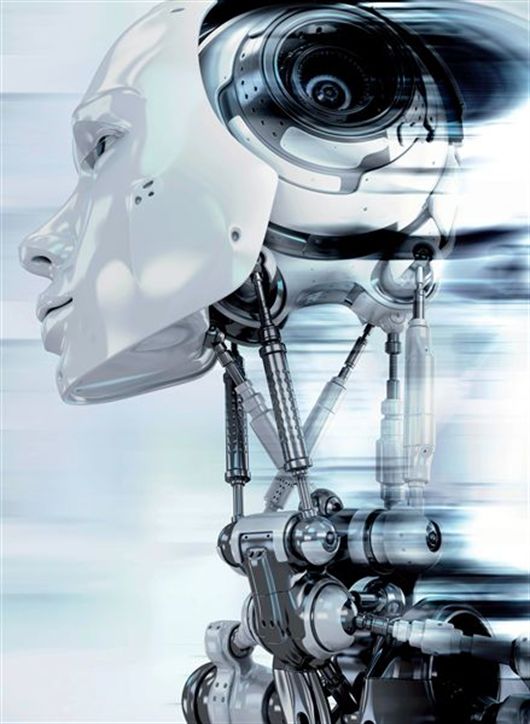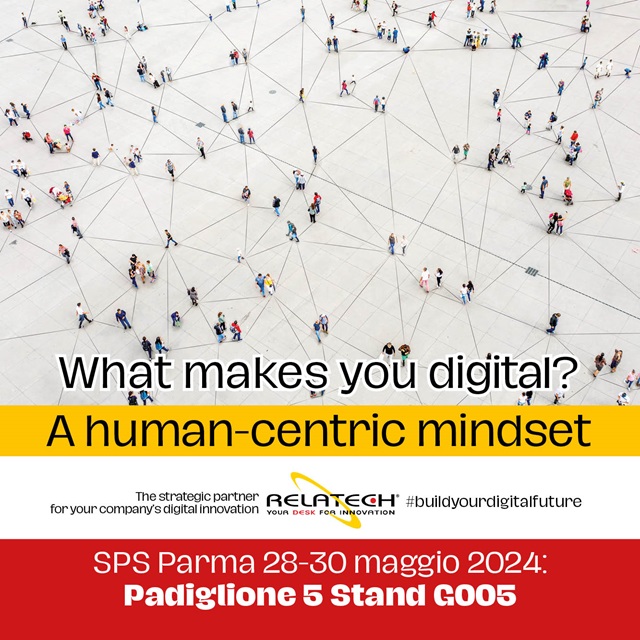
![]()
BACK TO THE FUTURE
Vivremo 130 anni. Circondati da assistenti personali artificiali che si occuperanno di noi. Aiutati da robot, intelligenza artificiale e una super-rete sempre collegata. Le nanotecnologie ci permetteranno di ricostruire cellule, tessuti e organi. Medicina del ringiovanimento, sarà il nome del reparto in cui andremo a cercare un’illusione di immortalità. Basta aspettare fino al 2030. Parola di Ray Hammond.
di Anna Guida
Nazionalità: inglese. Titolo di studio: laurea in informatica a Berkeley. Professione: futurologo.
Invitato a convegni, dibattiti e lezioni in tutto il mondo, Ray Hammond è considerato il massimo esperto europeo in fatto di proiezioni e ipotesi sull'avvenire. Nel 2007 aveva presentato alla Commissione Europea un rapporto che gli era stato commissionato da PlasticsEurope per consentire all’industria di far fronte nel modo migliore alle sfide del futuro.
Quel report, The World in 2030, è stato ora aggiornato e sarà pubblicato nel 2012. Abbiamo chiesto all’autore qualche anticipazione sul ruolo che la tecnologia giocherà nei prossimi 20 anni.
D. Per curiosità, come lavora un futurologo?
R. Non fa altro che leggere i segni del presente per predire quali influenzeranno il futuro in maniera più significativa. Se non è possibile indicare con certezza il verificarsi di un dato evento, è possibile però identificare i trend in procinto di irrompere nella società e intuire come modelleranno il futuro. Negare a noi stessi l'esercizio del pensiero visionario equivarrebbe a negare una delle grandi caratteristiche distintive della natura umana: osservare il presente per pianificare il futuro.
D. Quale sviluppo tecnologico ci dobbiamo aspettare nei prossimi 20 anni?
R. Una cosa è certa: gli enormi cambiamenti di cui siamo stati testimoni dagli anni '80 ad oggi non si fermeranno, anzi subiranno una grossa accelerazione, tanto che per certi versi la nostra vita nel 2030 sarà completamente diversa da quella attuale. Il cambiamento tecnologico cui assisteremo nei prossimi 20 anni sarà maggiore di quello che si è verificato nell’intero secolo precedente. Ed è stato il secolo che ha prodotto gli aerei, la plastica, l’energia nucleare, la televisione, il computer, internet! La velocità stessa dello sviluppo tecnologico sta crescendo in modo esponenziale.
D. A proposito di previsioni sul futuro delle tecnologie, che ne è stato dei vecchi cari robot dalle fattezze umane che avrebbero dovuto servirci il pranzo con il loro procedere traballante?
R. In un certo senso, non sono mai spariti. Nel futuro prossimo noi esseri umani condivideremo il pianeta con altre forme di esseri senzienti, creeremo della macchine in grado di fare tutte quelle cose che noi non avremo il tempo o la voglia di fare. Entro il 2030 i robot saranno prodotti di massa e sarà comune vederli lavorare fianco a fianco con gli umani, guidare nel traffico, pulire la casa, curare gli anziani... Queste macchine avranno un'intelligenza variabile e verranno in gran parte costruite con nuovi materiali plastici. Diventeranno per noi umani colleghi, assistenti, cani da guardia, badanti.
Queste entità non saranno solo hardware, ma anche software. Le “personalità software” entreranno a far parte della nostra vita quotidiana come assistenti personali all'interno di dispositivi mobili. Impareranno a conoscerci, a provare emozioni e a comunicare con noi. Immagini un cellulare che fa molte altre cose rispetto alla tantissime che fa già oggi. Mi ricorda i miei appuntamenti, chiama i contatti della mia rubrica, impara i miei gusti, registra tutti i dati relativi alla mia salute, gestisce il mio conto in banca online. Nel 2030 questo dispositivo avrà probabilmente la forma di un piccolo auricolare che, dall’orecchio, invierà segnali direttamente al cervello.
D. E come sarà internet nel 2030?
R. Una rete potente abbastanza da accogliere un trilione di dispositivi renderà possibile il concetto del “sempre acceso, sempre collegato”. Le tecnologie Radio Frequency Identification e i sensori senza fili consentiranno di localizzare e controllare costantemente i movimenti di uomini, animali, merci. Il controllo elettronico a distanza permetterà agli elettrodomestici di massimizzare i flussi di energia. La super-rete del futuro permetterà di provare esperienze multisensoriali, inclusa la stimolazione olfattiva e gustativa.
D. Lo sviluppo tecnologico creerà nuovi posti di lavoro o, al contrario, li diminuirà?
R. La tecnologia non crea né distrugge lavoro, ma può ristrutturarlo e ridistribuirlo. In generale, l’adozione di nuove tecnologie può portare panico a breve termine nella società perché alcuni lavori diventano obsoleti e spariscono, ma i benefici che “il nuovo” crea di solito procurano tali vantaggi economici da consentire alle aziende di espandersi e creare nuove figure professionali.
LA SUA MATERIA È “CIÒ CHE SARÀ”
Futurologo e scrittore di fama mondiale, Ray Hammond ha condotto per più di 30 anni ricerche sull’impatto che lo sviluppo tecnologico potrà assumere sulla vita quotidiana e sul sistema economico nei prossimi decenni. La combinazione tra una profonda conoscenza scientifica e sociologico-antropologica alimenta in lui una straordinaria capacità di previsione. È autore di 16 libri che sono stati tradotti in 32 lingue tra cui The On-Line Handbook del 1984, il primo saggio al mondo a prevedere l’importanza di Internet, e The Modern Frankenstein del 1986, che predisse l’importanza dell’ingegneria genetica, della clonazione e della macchine super intelligenti.
È docente ospite alla City University Business School (Londra), Docente a ACE Lab, University of Nottingham e Curatore alla University of Maryland (USA). Nel febbraio 2007 è stato eletto Membro della prestigiosa World Innovation Foundation.
![]()
BACK TO THE FUTURE
We will live 130 years. Surrounded by personal artificial assistants that will take care of us. Helped by robots, artificial intelligence and a super-net always connected.
Nanotechnologies will enable us to reconstruct cells, tissues and organs.
Medicine of Rejuvenation will be the name of the department where we will go and search for an immortality illusion. We have just to wait until 2030. Ray Hammond’s word.
by Anna Guida
Nationality: English. Qualification: degree in computer science at Berkeley. Job: futurologist.
Invited to conventions, debates and lessons all over the world, Ray Hammond is considered the maximum European expert in projections and hypotheses about the future.
In 2007 he had presented the European Commission a report that PlasticsEurope had commissioned to him to enable industry to deal with future challenges in the best way.
That report, The World in 2030, has been now updated and will be published in 2012. We have asked the author some anticipation about the role that technology will play in the next 20 years.
D. Out of curiosity, how does a futurologist work?
R. He just reads the signs of the present to forecast which of them will influence the future in the most significant way. While it is not possible to indicate the occurrence of a certain event with certainty, it is anyway possible to identify the trends that are going to break into the society and to guess how they will shape the future. To deny the exercise of the visionary thought to ourselves would mean to deny one of the distinguishing characteristics of human nature: to observe the present to plan the future.
D. What technological development should we expect in the next 20 years?
R. One thing is certain: the enormous changes that we have witnessed from the Eighties until now will not stop, but on the contrary they will be further accelerated, to the extent that from determinate points of views in 2030 our life will be completely different from the present one. The technological change that we will see in the next 20 years will be greater than that occurred in the whole previous century. And that century produced planes, plastic, nuclear power, television, computer, Internet! The fastness itself of the technological development is rising in exponential way.
D. Speaking of forecasts about the future of technologies, what happened to the old dear robots with human features that should have served our lunch with their wobbly pace?
R. In a certain sense, they have never disappeared. In the next future we, human beings, will share the planet with other forms of sentient beings, we will create some machines able to make all those things that we will have neither the time nor the will of doing. Within 2030 robots will be mass-produced and it will be common to see them work side by side with men, drive in the traffic, clean the house, take care of old people... These machines will have a variable intelligence and will be mostly manufactured with new plastic materials. They will become colleagues, assistants, watchdogs, carers for us human beings. These entities will not be only hardware, but also software. The “software personalities” will become part of our everyday life as personal assistants inside mobile devices. The will learn to know us, to feel emotions and to communicate with us. Just imagine a portable phone that performs many other things in addition to the very many that it already does today. It reminds me my appointments, calls up the contacts in my agenda, learns my tastes, records all the data about my health and manages my bank account online. In 2030 this device will probably have the shape of a small earphone that, from the ear, will send signals directly to the brain.
D. And how will Internet be in 2030?
R. A net powerful enough to house one trillion devices will make the concept “always on, always connected” possible. Radio Frequency Identification technologies and wireless sensors will allow localizing and controlling constantly the movements of men, animals and goods. The remote electronic control will permit household appliances to maximise energy flows. The super-net of the future will permit to experience multi-sensory experiences, including the olfactory and gustatory stimulation.
D. Will the technological development create new workplaces or, on the contrary, will it diminish them?
R. Technology neither creates nor destroys work but it can reorganize or redistribute it. In general, the adoption of new technologies can generate short-term panic in the society because some jobs become obsolete and disappear but the benefits that “the new” creates generally bring such economic advantages that companies can expand and create new professional figures.
HIS MATTER IS “WHAT WILL BE”
Futurologist and writer of international renown, for over 30 years Ray Hammond has carried out some researches on the impact that the technological development will exert on daily life and on the economic system in the next decades. The combination of scientific and sociologic-anthropologic knowledge inspires extraordinary forecast ability to him. He is the author of 16 books that have been translated into 32 languages, such as The On-Line Handbook in 1984, the first essay in the world that foresaw the importance of Internet, and The Modern Frankenstein in 1986, which forecast the importance of genetic engineering, cloning and super-intelligent machines. He is guest professor at the City University Business School (London), professor at ACE Lab, University of Nottingham and Curator at the University of Maryland (USA). In February 2007 he was elected Member of the prestigious World Innovation Foundation.
















